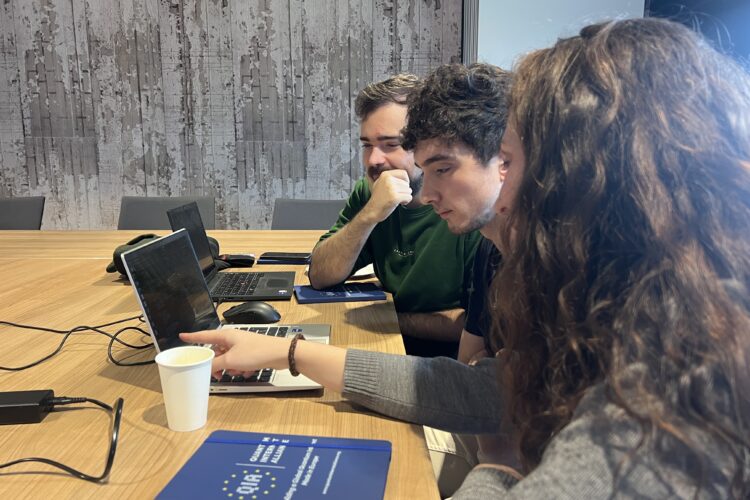IMDEA Networks

Noticias
Mujeres en STEM: historias para inspirar a las nuevas generaciones
En el marco del Día Internacional de la Mujer y la Niña en la Ciencia, hemos entrevistado a cinco de...
Seguir leyendo arrow_right_altIMDEA Networks despliega una farola inteligente de última generación con tecnología 5G de onda milimétrica y WiFi 7 junto con colaboradores de NEXTONIC
IMDEA Networks Institute ha instalado con éxito una farola inteligente de última generación en los exteriores de su sede en...
Seguir leyendo arrow_right_altEl proyecto MLEDGE demuestra que el aprendizaje federado puede respaldar servicios de inteligencia artificial en el mundo real
Tras dos años y medio de trabajo, el proyecto MLEDGE (Cloud and Edge Machine Learning), liderado por el profesor Nikolaos...
Seguir leyendo arrow_right_altIMDEA Networks refuerza su liderazgo en investigación 6G con nuevas infraestructuras financiadas por fondos NextGenerationEU
IMDEA Networks ha reforzado de manera significativa sus capacidades de investigación en 5G avanzado y futuras redes 6G gracias a...
Seguir leyendo arrow_right_alt“IMDEA Networks es una combinación perfecta de ética de trabajo y espíritu colaborativo”
Lucianna Kiffer, profesora asistente de investigación en IMDEA Networks y responsable del Grupo de Sistemas Distribuidos y Redes, comparte en...
Seguir leyendo arrow_right_altIMDEA Networks abre sus laboratorios a estudiantes de FP en una jornada divulgativa
Alrededor de 60 estudiantes de FP del IES San Juan de la Cruz y el Colegio Valle del Miro han...
Seguir leyendo arrow_right_altIMDEA Networks crea una herramienta de marca de agua segura para proteger los datos institucionales
El proyecto europeo DataBri-X, que comenzó en octubre de 2022, ha llegado recientemente a su fin logrando un hito clave:...
Seguir leyendo arrow_right_altUn equipo de IMDEA Networks participa en el Hackathon de la Quantum Internet Alliance 2025
Un equipo de IMDEA Networks participa, en el marco del proyecto regional MADQUANTUM-CM (financiado por la Comunidad de Madrid y...
Seguir leyendo arrow_right_altIMDEA Networks muestra sus avances en el cierre del Plan de Comunicaciones Cuánticas
En el marco del proyecto MadQuantum-CM, IMDEA Networks ha participado en el evento final del Plan Complementario de Comunicaciones Cuánticas,...
Seguir leyendo arrow_right_altSUN-DT avanza hacia la digitalización completa de las plantas termosolares de torre para mejorar eficiencia y reducir costes operativos
El proyecto europeo SUN-DT, en el que participa IMDEA Networks y financiado por Horizonte Europa, ha arrancado oficialmente sus actividades...
Seguir leyendo arrow_right_alt











Comentarios recientes